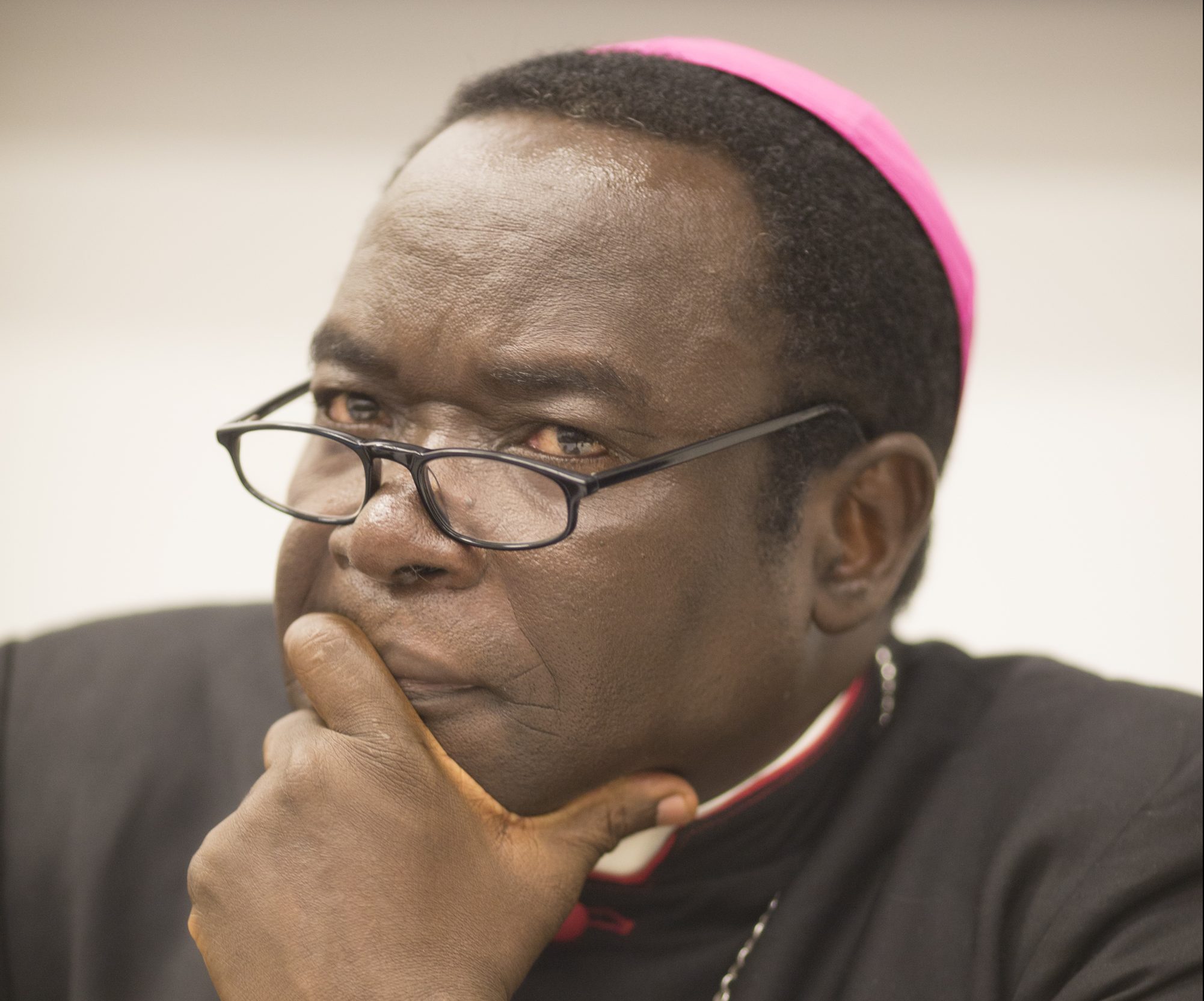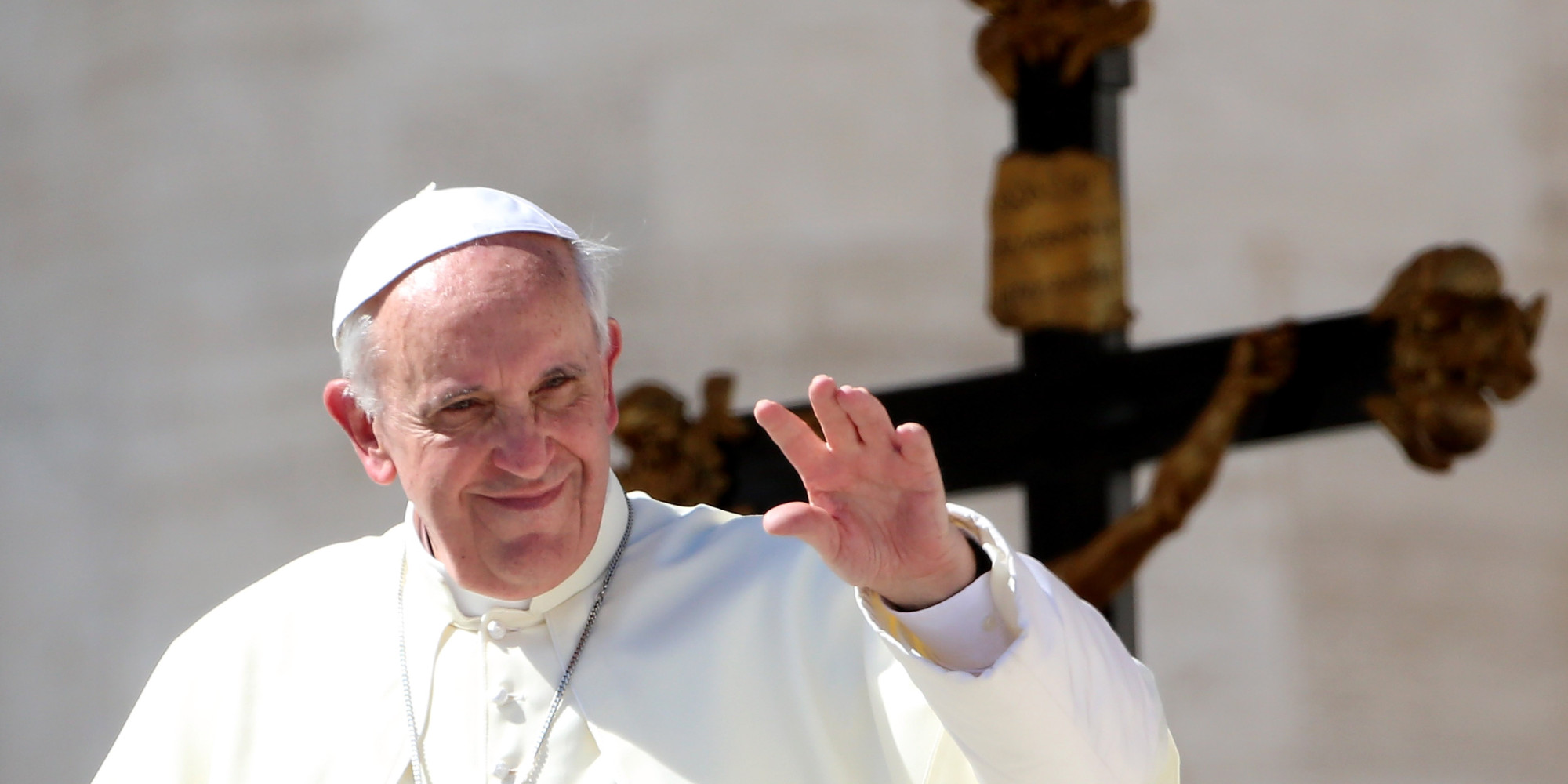The Benue State Governor, Samuel Ortom has backed the Catholic Bishop of Sokoto, Bishop Matthew Kukah over his recent comments on insecurity.
Kukah had during an address to the US Congress Commission on July 15, accused President Muhammadu Buhari of showing preference to people of his religion which according to him, has worsened the rivalry between Christians and Muslims.
Kukah said the Buhari administration has failed to address insecurity but the presidency had replied the Catholic bishop, accusing him of trying to sow discord and strife among Nigerians.
The Presidency has since tackled Kukah, describing his comments as “unfortunate and disappointing”, complaining that the cleric “castigated” Nigeria before the US lawmakers.
However, supporting the cleric via a statement issued on Saturday by his spokesman, Terver Akase, Governor Ortom asked the Federal Government to stop intimidating patriotic Nigerians who are raising genuine concerns over the worsening security and economic situation in the country.
Ortom said he “stands with Bishop Kukah on the issues he raised,” adding that he would have said similar things if he were to address the same audience.
“Governor Ortom states that the country is practicing democracy which has no room for repression and dictatorship,” the statement partly read.
“He notes that the country’s Constitution guarantees the freedom of speech to all citizens, unlike a military regime which suppresses the right of the people to voice their opinions on challenges facing their country.”
The Benue governor described the cleric as “one Nigerian who is selfless and speaks his mind frankly on national issues calling on the government to ensure justice, the rule of law and equity for all.”
He also took a swipe at the Presidency’s response to the criticism, wondering why the current administration has chosen to politicize the views of Bishop Kukah when all the issues he highlighted in his address are facts about the country.
“He says Kukah was right when he stated that nepotism has been elevated above federal character by the present administration. He further agrees with the Bishop that Christians across the country are targets of elimination and thousands have already fallen to the sword of jihadist supremacists,” the statement added.
See the full statement issued by Governor Samuel Ortom below:
I STAND WITH BISHOP KUKAH – GOV ORTOM
Benue State Governor, Samuel Ortom describes as unfortunate, the response of the Presidency to the Catholic Bishop of Sokoto Diocese, Bishop Matthew Kukah’s address to the United States Congress Committee on Foreign Affairs regarding the wave of insecurity in the country.
The Governor says he stands with Bishop Kukah on the issues he raised and stresses that he would have said similar things if he were to address the same audience.
He advises the Federal Government to stop intimidating patriotic Nigerians who are raising genuine concerns over the worsening security and economic situation in the country.
Governor Ortom states that the country is practicing democracy which has no room for repression and dictatorship. He notes that the country’s Constitution guarantees the freedom of speech to all citizens, unlike a military regime which suppresses the right of the people to voice their opinions on challenges facing their country.
He says Bishop Kukah is one Nigerian who is selfless and speaks his mind frankly on national issues calling on the government to ensure justice, the rule of law and equity for all.
The Governor wonders why the Presidency has chosen to politicize the views of Bishop Kukah when all the issues he highlighted in his address are facts about the country.
He says Kukah was right when he stated that nepotism has been elevated above federal character by the present administration. He further agrees with the Bishop that Christians across the country are targets of elimination and thousands have already fallen to the sword of jihadist supremacists.
Governor Ortom states that Kukah is not to blame for the ranking of Nigeria as the 8th least peaceful country in Africa and the rating of killer herdsmen as the 4th deadliest terror group in the world by the Global Terrorism Index.
He expects the Presidency to rather be worried that Nigeria is ranked as the most terrorised nation in Africa with an average of over 2,000 deaths per year on account of terrorism.
He emphasizes that the combative approach the Presidency has adopted in engaging citizens on issues will not solve the problems confronting the country.
Governor Ortom says Bishop Kukah is not the first Nigerian to address a foreign audience on the security situation in the country. He recalls that in February, 2015 President Buhari was at the time the candidate of All Progressives Congress, APC, when he delivered a speech at Chatham House in London, where he stated that “Boko Haram has sadly put Nigeria on the terrorism map, killing more than 13,000 of our nationals.” The President went on to announce to the world on that occasion that apart from the civil war era, Nigeria had never been more insecure in the country’s history.
The Governor states that if a man who was seeking to govern the country could reel out such scary statistics, why will his aides now launch media attacks on a clergyman who is only advocating peace and is drawing the attention of the global community to the plight of helpless Nigerians.
Governor Ortom once again tasks the Federal Government to arrest and prosecute members of armed Fulani groups for killing innocent Nigerians, the same way it effected the arrest of the leader of Indigenous People of Biafra (IPOB), Nnamdi Kanu, and Yoruba nation agitator, Sunday Igboho to prove critics wrong that its fight against terrorism and other crimes is unbiased.
He says the President may not be collecting proceeds from corrupt deals under his administration and may even not be aware that such shady deals exist, but some of his aides are deeply involved in corrupt practices and are denying Nigerians of the services and projects meant to alleviate poverty and hunger in the land.
Governor Ortom maintains that the President may also not be aware that Nigerians are facing harsh economic conditions and many are being killed by bandits, herdsmen and other terrorists because some of the persons saddled with the responsibility of telling him the truth have refused to do so.
He urges the Presidency to listen to the voices of reason and resist the temptation to whip into silence those who genuinely love the country and are offering solutions to its challenges.
Terver Akase
Chief Press Secretary
July 24, 2021.


